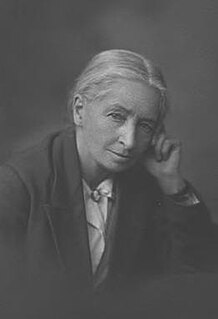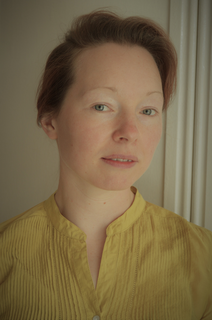Women's studies is an academic field that draws on feminist and interdisciplinary methods in order to place women's lives and experiences at the center of study, while examining social and cultural constructs of gender; systems of privilege and oppression; and the relationships between power and gender as they intersect with other identities and social locations such as race, sexual orientation, socio-economic class, and disability.

Dame Winifred Mary Beard, is an English scholar of Ancient Rome.

The Digital Classicist is a community of those interested in the application of digital humanities to the field of classics and to ancient world studies more generally. The project claims the twin aims of bringing together scholars and students with an interest in computing and the ancient world, and disseminating advice and experience to the classics discipline at large. The Digital Classicist was founded in 2005 as a collaborative project based at King's College London and the University of Kentucky, with editors and advisors from the classics discipline at large.
The Women's Classical Caucus, Inc. (WCC) is an affiliate of the American Philological Association, the organization for North American scholars and teachers of Greek and Latin language, literature, and culture, Greek and Roman historians, and scholars of ancient philosophy, science, material culture, papyrology, epigraphy, and other fields. The WCC also maintains liaisons with the American Institute of Archaeology and with the Lambda Classical Caucus, formerly the Lesbian and Gay Classical Caucus.
The Classical Association of the Middle West and South (CAMWS) is a professional organization for classicists and non-classicists at all levels of instruction which promotes the Classics through the broad scope of its annual meeting, through its publication of both original research and pedagogical contributions in The Classical Journal and Teaching Classical Languages and through its awards, scholarships, and outreach initiatives.
An edit-a-thon is an event where editors of online communities such as Wikipedia, OpenStreetMap, and LocalWiki edit and improve a specific topic or type of content. The events typically include basic editing training for new editors and may be combined with a more general social meetup. The word is a portmanteau of "edit" and "marathon". An edit-a-thon can either be "in-person" or online or a blended version of both. If it is not in-person, it is usually called a "virtual edit-a-thon" or "online edit-a-thon".
The Society for Medieval Feminist Scholarship (SMFS) is an academic organization which "promotes the study of the Patristic Age, the Middle Ages, and the Early Modern era from the perspective of gender studies, women's studies, and feminist studies". Its development followed the rise of the study of medieval women in the 1970s and 1980s, and sought to increase the number of and sponsor papers about medieval women, and feminist theory driven scholarship, at the largest international medieval studies conferences, International Congress on Medieval Studies in Kalamazoo and Leeds IMC.

Edith Sharpley (1859–1940) was a Classical Lecturer at Newnham College, Cambridge from 1884 to 1910.
Judith P. Hallett is Professor Emerita of Classics, having formerly been the Graduate Director at the Department of Classics, University of Maryland. Her research focuses on women, the family, and sexuality in ancient Greece and Rome, particularly in Latin literature. She is also an expert on classical education and reception in the nineteenth and twentieth centuries.

Nancy Sorkin Rabinowitz is a classical scholar, specialising in ancient Greek literature and intersectional feminism.

Judith Mossman is Pro-Vice Chancellor for Arts and Humanities and Professor of Classics at Coventry University. She was the President of the Society for the Promotion of Hellenic Studies (2017-20).
Barbara Elizabeth Goff is a Classics Professor at the University of Reading. She specialises in Greek tragedy and its reception; women in antiquity; postcolonial classics and reception of Greek political thought.
Fiona McHardy is a Professor of Classics and also the Head of History and Classics in the School of Humanities and Social Sciences at the University of Roehampton. In 2003 she started work at Roehampton where she was responsible for building up the BA Classical Civilisation. Her research interests include ancient and modern Greek literature, folk poetry, anthropology and culture. She teaches modules on ancient Greek language, literature and culture.

Donna Zuckerberg is an American classicist, feminist, and writer. She is author of the book Not All Dead White Men (2018), about the appropriation of classics by misogynist groups on the Internet. She was editor-in-chief of Eidolon, a classics journal, until its closure in 2020.

Shelley P. Haley is the Edward North Chair of Classics and Professor of Africana Studies at Hamilton College, New York, and President of the Society for Classical Studies. She is an expert in applying Black feminist and critical race approaches to the study and teaching of Classics.

Alison Keith is a classical scholar who is Professor of Classics and Women's Studies at the University of Toronto, where she has been a Fellow of Victoria University of Toronto since 1989. She is an expert on the relationships between gender and genre in Latin literature, and has published widely on topics including Latin epic poetry, Ovid, Propertius, and Roman dress.

Rebecca Futo Kennedy is Associate Professor of Classics, Women's and Gender Studies, and Environmental Studies at Denison University; and the Director of the Denison Museum. Her research focuses on the political, social, and cultural history of Classical Athens, Athenian tragedy, ancient immigration, ancient theories of race and ethnicity, and the reception of those theories in modern race science.

Katherine Harloe is Professor of Classics and Director of the Institute of Classical Studies, School of Advanced Study, University of London. Previously she was Professor of Classics at the University of Reading. She is an expert on the history of classical scholarship, the reception of Greek and Roman antiquity, and the eighteenth-century German classicist and art historian Johann Joachim Winckelmann. She is the first black professor of Classics in the UK, and the first woman director of the ICS.

Victoria Leonard is a British Classicist specialising in the study of religion, gender, and the body in Late antiquity. She is a Post-Doctoral researcher at Royal Holloway, University of London and a research fellow at the Institute of Classical Studies. She holds a PhD from Cardiff University. Leonard was elected as a Fellow of the Royal Historical Society in July 2019.
Elizabeth Gloyn is a Reader in Latin Language and Literature at Royal Holloway, the University of London and a Senior Fellow of the Higher Education Academy. Her research focuses on the intersection between Latin literature, ancient philosophy and gender studies; as well as topics of classical reception, and the history of women in the field of Classics.











